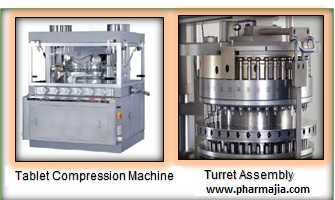Tablet Manufacturing: Metal Detector in Action
This article describes about Metal Detector, Its importance in pharmaceutical industry, How it works, Regulations, Challenges, Maintenance and calibrations How it works, Its benefits. Moreover, enlisted frequently asked questions.
Metal Detector- A line Machine in Tablet Manufacturing Process
What is mean by Metal Detector and its Working principle ?
Metal Detector is the line equipment in Tablet manufacturing process and this equipment is used to detect metal contaminants in pharmaceutical products (Tablet ,Capsule etc) if any available in the product. Pharmaceutical manufacturing process requires a high level of quality control to ensure the safety and efficacy of drugs. One important tool in achieving this goal is the use of Metal Detector.
It is an electronic device that can detect the presence of metal objects. It works by generating an electromagnetic field and detecting any changes in that field caused by the presence of metal. When metal is detected, the device triggers an alarm or signal to alert the operator and Tablet get Rejected in reject bin
The presence of metal in pharmaceutical products can pose a significant risk to patient safety. Metal contaminants can be introduced at any point in the manufacturing process, from raw materials to finished products. To minimize this risk, pharmaceutical companies rely on Metal Detector to detect metal contaminants.
This machine can be installed during Compression stage or before packing stage.
Importance of Metal Detector in the Pharmaceutical Industry
The use of Metal Detector in the pharmaceutical industry is critical for ensuring product quality and patient safety. Metal contaminants can be introduced into pharmaceutical products at any point in the manufacturing process, and can be difficult to detect without specialized equipment. it is provide an additional layer of quality control to help prevent metal contamination.
Regulations and Standards for Metal Detection in Pharmaceuticals
Regulatory agencies, such as the FDA and the European Medicines Agency (EMA), require pharmaceutical companies to implement metal detection systems as part of their quality control processes. These agencies also provide guidelines for the design and validation of metal detection systems.
Benefits of Metal Detection in Pharmaceuticals
There are many benefits to using this machine in the pharmaceutical industry, some of those enlisted below,
- Improved product quality: It can help ensure that pharmaceutical products are free from metal contaminants, improving their safety and efficacy.
- Reduced product recalls: By detecting and removing metal contaminants from the production line, Metal Detector can help reduce the risk of product recalls due to metal contamination.
- Cost savings: It can help identify and remove contaminated products before they are shipped to customers, reducing the cost of product recalls and potential legal action.
Common Challenges :
There are many challenges associated with metal detection in the pharmaceutical industry, some of those enlisted as below :
- Product interference: Certain products, such as those with high moisture content, small tablets can interfere with metal detection systems.
- False positives: Metal detection systems can sometimes trigger false alarms due to non-metallic objects or environmental factors.
- Product waste: Metal detection systems can result in the removal of otherwise safe and usable products due to the presence of metal contaminants.
What are the different types of chips used for calibration or Functionality check of Metal Detector and how it can be used.
Below Four Types of chips are using to calibrate or to check functionality of Metal Detector at certain level as below.
- 0.3 mm Ferrous Chip
- 0.3 mm Non Ferrous Chip
- 0.5 mm SS Chip
- Dummy (Without Metal) chip
At the start of the operation and during operation (every one or two hour Frequency ) these chips should pass through Metal Detector.
Ferrous, Non Ferrous and SS Chips should reject by the Metal Detector and will collect in Reject bin, whereas dummy chip should pass through Metal Detector and will collect in good tablet container.
Maintenance and Calibration of Metal Detector
To ensure the accuracy and reliability of this machine, regular maintenance and calibration are necessary. This includes cleaning the equipment, Testing for accuracy, and ensuring that the system is properly configured to minimize false alarms.
Frequently Asked Questions (FAQs) :
How Metal Detector Detect Metal?
It works by generating an electromagnetic field and detecting any changes in that field caused by the presence of metal. When metal is detected, the device triggers an alarm or signal to alert the operator and Tablet get Rejected in reject bin
Why is metal detection important in the pharmaceutical industry?
Metal detection is important in the pharmaceutical industry to ensure product quality and patient safety by detecting and removing metal contaminants.
How do you maintain and calibrate Metal Detector?
It require regular cleaning, testing for accuracy, and proper configuration to minimize false alarms.
What are the different types of chips used for calibration of Metal Detector?
Four different types of chips are using to calibrate the Metal Detector are as 0.3 mm Ferrous Chip,0.3 mm Non-Ferrous Chip ,0.5 mm SS Chip, Dummy (Without Metal) chip.
What are the benefits of using Metal Detector in the pharmaceutical industry?
By using this equipment, Will Improve product quality, reduced product recalls, and cost savings.


